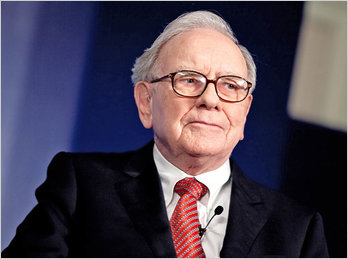 Like many, I was a little surprised by the initial under-reaction of Warren Buffett’s response to the David Sokol resignation. In case you missed the full story, Sokol personally bought a boatload of shares of a company that he soon recommended get acquired by Berkshire Hathaway.
Like many, I was a little surprised by the initial under-reaction of Warren Buffett’s response to the David Sokol resignation. In case you missed the full story, Sokol personally bought a boatload of shares of a company that he soon recommended get acquired by Berkshire Hathaway.
Buffett responded with a rather vanilla quote in the initial press release: “Neither Dave nor I feel his Lubrizol purchases were in any way unlawful.”
Quite a flaccid response from the man who once reportedly opined: “Lose money for the firm and I will be understanding; lose a shred of reputation for the firm, and I will be ruthless.”
However, rather than rush to WordPress with a damning blog post, I decided to wait until more facts were made public. On Monday, an article by Andrew Ross Sorkin restored some of my faith in the Oracle of Omaha.
Key callouts:
Responding to the criticism, Mr. Buffett said, “What I think bothers some people is that there wasn’t some big sense of outrage.” He added, “I plead guilty to that.”
While Mr. Buffett praised Mr. Sokol in the statement announcing the resignation, he left out one big “ruthless” fact that would change the narrative completely. The day he issued the release, Berkshire called the Securities and Exchange Commission and briefed them on Mr. Sokol’s trades, which Mr. Buffett described to me as “pretty damning evidence.”
A close friend of Mr. Buffett’s explained his thinking this way. “Warren knew that the
second that press release hit the wires, Sokol’s professional career was over. Done. Forever. Sokol was finished. He didn’t need to brag about being ‘ruthless.’ ”
“The media wanted more — a nasty quote about how upset Warren was with Dave. But what’s the point? Just laying out the facts so publicly was the most ruthless thing he could have done. If you worked at Berkshire, you got the message loud and clear.”
And then —
Despite all the blaring headlines and questions about whether Mr. Buffett’s reputation has been forever tarnished, Berkshire’s shareholders, the ones who actually have money on the line, seemed to be fine with the way the matter was handled.
Crisis management pros often say that how you respond to a crisis can often have more impact than the crisis itself. This is accurate – if you give the response an appropriate amount of time to take shape and make an impact.
As always, I welcome your thoughts and opinions below.

I think the best thing about how Buffet and Berkshire handled this was that they adhered to one of, if not THE, golden rule of crisis: Respond to the appropriate stakeholders in the matter.
The true stakeholders in were the shareholders and the remaining Berkshire employees. The shareholders were assured that their money would not be that adversely affected, and that Sokol's career with Berkshire (and anyone else for that matter) was done, and the remaining employees now have a tangible example of what will happen if they even think about crossing Buffett with regards to Berkshire's reputation.
While the media and public at-large might have wanted more, they didn't matter as much. And besides, when was the last time we saw Buffett fly into a public rage about anything? That's not the way he handles his business. So to expect that would be silly. No reason to play to the silliness factor.
Great input, @Jericles. Thanks for your comment!